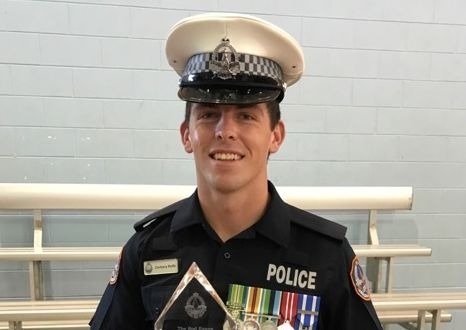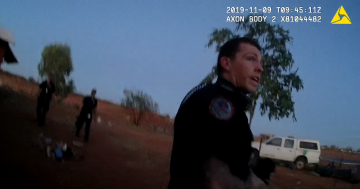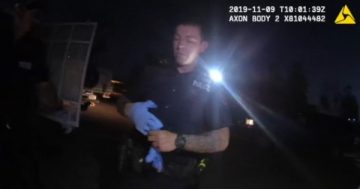
Constable Zachary Rolfe was acquitted over the death of Kumanjayi Walker. Photo: File.
CONTENT WARNING: Readers are advised this article contains content some may find distressing.
While Canberra’s Zachary Rolfe was cleared of all charges over the death of Kumanjayi Walker, a coronial inquest has heard there is still much more to learn.
“At the start of this inquest, I ask myself this question – do I know the story of Kumanjayi Walker and Constable Zachary Rolfe? Do you?” Judge Elisabeth Armitage said as the inquest began in Alice Springs on Monday (5 September).
Judge Armitage, the corner for the inquest, said many people had seen the media coverage of the Supreme Court trial earlier this year, read reports of his acquittal and seen the body camera footage of the shooting.
“You might wonder whether there is anything more to say,” she said.
“During this inquest, I am inviting everyone to look a little deeper and listen a little longer because I think there is more to learn from, and more we need to try and understand about this story.”
Judge Armitage asked: “What did it sound and feel like for Kumanjayi’s family when they heard those three gunshots?”
She said after he was shot, he was “dragged” past his family to Yuendumu’s police station, where he was locked inside while his family and community members were locked outside.
While there was footage of officers trying to help Mr Walker, she said there was nothing from the perspective of those locked outside.
“But we do know that they were all prevented from being with Kumanjayi as he passed away,” she said.
Judge Armitage said in order to understand this story, she wanted to learn why the police station’s doors were locked that night, as well as to hear from those outside the station to hear about events from their perspective.
“Are there examples of policing where the risk of this kind of confrontation can be minimised or even avoided altogether?” she asked.
Judge Armitage said Mr Walker threatened two police officers with an axe in the days before he was killed, but those officers backed away and no one was hurt.
Also, the trial verdict showed Constable Rolfe was not guilty of any crime when he fired his pistol.
She said on any given day, police officers might be confronted and threatened by an armed person, and in each case, the officer has to decide how to respond, sometimes in a split second.
“In each case, there is likely to be a range of possible responses, de-escalation, no or minimal force, and potentially up to and including lethal force,” she said.
“Out of a wide range of possible choices, how is an officer to make the best and most appropriate choice?
“Are the guidelines and training adequate and sufficient to ensure police are equipped to make good choices in high-risk situations?”
The inquest is expected to continue until 25 November.














